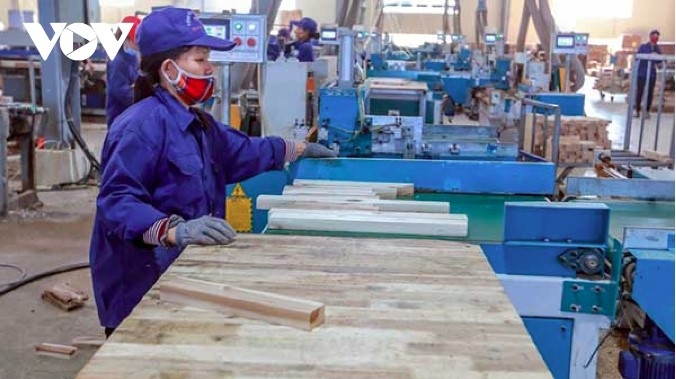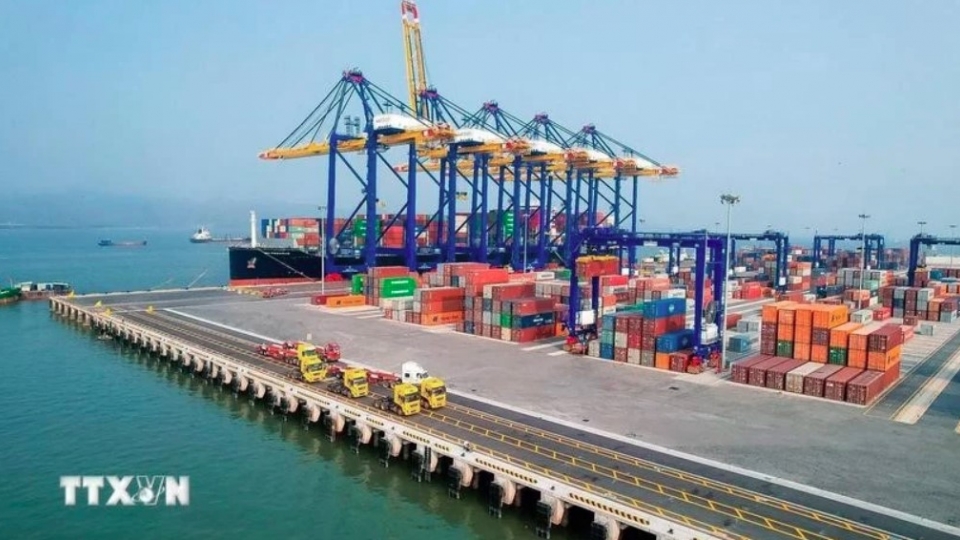Vietnamese businesses seek foothold in US market during 90-day tariff suspension
VOV.VN - The 90-day suspension of reciprocal tariffs by the US, which includes Vietnam, is viewed as a "golden period" for relevant agencies, businesses, and industry associations to prepare plans to meet the export standards, particularly for the US market.

Recognizing the need for fundamental solutions to help local exporters cope with the new reciprocal tariffs from the US after the 90-day suspension, Nguyen The Hiep, Deputy Director of the Hanoi Department of Industry and Trade, said that the department is closely monitoring developments in the trade policies of major countries. It is also in regular contact with businesses to understand their market needs and relay the information about the support they need to the Ministry of Industry and Trade, in order to propose appropriate response measures.
The department has also organized trade promotion delegations to foreign markets to help businesses join trade fairs and exhibitions, find partners, and keep up with global trends.
He also suggested that businesses diversify their export markets, reduce dependence on the US, and explore opportunities in markets where Vietnam has signed Free Trade Agreements (FTAs).
“Businesses should minimize reliance on imported materials and comply with FTA rules of origin to benefit from preferential tariffs. They must be cautious with raw material sources, especially from countries subject to tariffs, to avoid potential investigations into origin fraud or circumvention of tariffs,” said Hiep.
For the long term, in response to the new tariff situation, Hiep proposed that the government continue reducing VAT by 2% to ease financial pressure on businesses. He also urged financial institutions to support businesses, particularly small and medium-sized enterprises (SMEs), in accessing credit. Departments and agencies should continue administrative reforms to help businesses shorten processing times and seize business opportunities both domestically and abroad.
Ngo Chung Khanh, Deputy Head of the Department of Multilateral Trade Policy under the Ministry of Industry and Trade, stated that the 90-day suspension is a valuable period for countries to prepare, from State management agencies to businesses, to discuss and resolve tariff-related issues.

Khanh particularly emphasized that the 90-day grace period should not be seen as a chance for countries and businesses to relax, as the official reciprocal tariffs after the 90 days will largely depend on trade negotiations between countries and the US.
At a time when the US and China are engaged in a trade war, the outcome could create two extreme scenarios that many countries must pay attention to. The repercussions of this confrontation will negatively affect the global economy, so Vietnam needs to prepare at least two scenarios.
In the first scenario, if Vietnam reaches a trade agreement with the US, restoring the MFN tariff rates and the US maintains its 145% tariff on Chinese goods, many countries will likely face large-scale shifts in investment and trade to Vietnam. Meanwhile, US President Trump’s policy of controlling Chinese goods closely could inadvertently make Vietnam the next victim if it doesn't act appropriately.
In the second scenario, if Vietnam and other countries, including China, fail to reach a new tariff agreement with the US, a global trade war will erupt, affecting Vietnam as well.
Therefore, to prepare for the potential new tariffs from the US, Khanh suggested that exporters ensure transparency in their supply chains and comply with rules of origin by diversifying sources. Special attention should be paid to sourcing from the US, rather than relying on a single source with high risks. This is an issue that the Trump administration is also closely monitoring.
"Although Vietnamese exporters have made good use of FTAs, there is still ample room for growth. Many of Vietnam’s key exports are still small in the EU market compared to its capacity. As a result, businesses should abandon the ‘putting all eggs in one basket’ mindset,” Khanh advised.
Recently, the Ministry of Industry and Trade issued Directive No. 09 on enhancing state management of the monitoring and inspection of goods origin in the new context. Accordingly, the Minister of Industry and Trade instructed relevant agencies, especially those issuing Certificates of Origin (C/O), to carry out coordinated, proactive measures.
Specifically, the ministry aims to strengthen the management of input raw materials for the production of export goods, while ensuring compliance with food safety, quality, and origin requirements of importing countries.
They are also coordinating with the Department of Customs to enhance the inspection and verification of the origin of goods, particularly imported materials for export production, during customs procedures.



